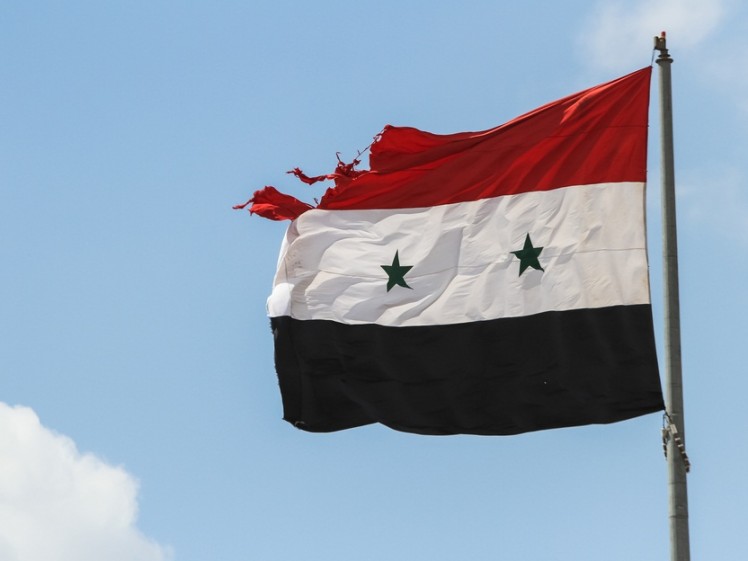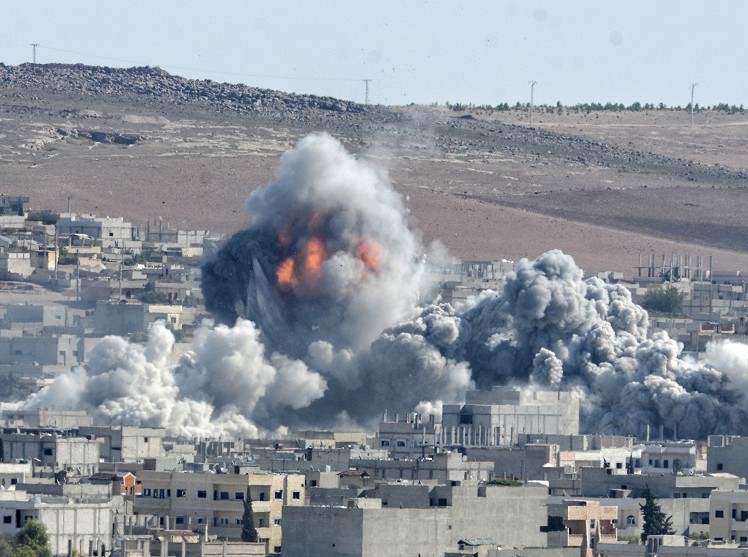Gold? Silver? Oil? TEG’s Group Editor Chad Merchant thinks that world’s most valuable commodity is none of these things.
The other day, I was doing some research for an article I was writing, and clicking around on the Internet, as one does. Then, a rather unremarkable minor headline caught my attention, and I clicked on it. “Drone captures stunning footage of devastated city,” or something along those lines. It was a video of the Syrian city of Homs, once the third largest city in this currently war-ravaged country.
After five years of unending civil war, countless days of mortar salvos, tank attacks, rocket hits, and bombings, this once-thriving city – one I had never even heard of – is now all but obliterated. It’s both distressing and compelling seeing the sad, aerial footage of such destruction, every bit of it wrought by the hand of man.
Three young children glimpse the drone and salute it before running off. A single lonely automobile makes its way down a debris-littered, but otherwise empty, street. With these the only signs of life on the video, what’s left of Homs is a shocking statement about the desperate plight of Syrians. It’s altogether more appalling when you see photos or video of what the city looked like just five years ago in happier times; those images are readily available, too.
So I then proceeded to spend the next 20 minutes reading about the war in Syria. All the players involved. The high stakes for the region and possibly the world. The countries getting drawn into the fray, either directly or by proxy. The chemical attacks. Then I read about sarin, the deadly toxic nerve agent used in the attacks. And on and on.
It was a lot of education to pack into a short time. Of course I knew a little of the turbulence in Syria. I’m aware of the ongoing refugee crisis. I saw the heart-wrenching photo of the dead Syrian toddler washed up on the beach of the Mediterranean Sea. But now I know a great deal more. And why? Because one little collection of words somehow captured my attention.
And there it is. In a world of gold and platinum, of stocks and securities, of assets large and small, what’s supremely precious is something that cannot be packaged, cannot be sold, and cannot be photographed. Attention is the most valuable commodity in the world.
Without getting someone’s attention, you’ll never convince them of much, certainly never sell them anything, never get them to fall in love with you. If you’re an insecure leader with little to offer, you’ll never be able to instil fear in those you lead without first getting their attention.
The Super Bowl was recently played in the United States, too, and this year, the cost of a 30-second ad was a whopping $5 million. And many of those ads aren’t even pitching products, they’re just building brand awareness. They’re paying that princely sum just to get people’s attention.
Still not convinced? Mark Zuckerberg, at 31, is now the world’s fourth-richest person, all because he managed to get the attention of enough people. He doesn’t even have a tangible product to sell. But he has the attention of over a billion human beings, and that attention has translated into vast wealth.
This point is driven home for me by bearing witness to the US election spectacle currently unfolding, as well as the ongoing political drama here in Malaysia. Some candidates rely on stoking fear to win votes – fear of being attacked, fear of different religions and races, fear of the future – and some already in power use fear to maintain that hold, however tenuous it might be.

Of course plenty of religious leaders, I’m sorry to say, have long used the fear of death to bend people to their will and to convince them that the religion they are personally preaching is the one that can allay that fear. But whatever the motive, they all have to get people’s attention first. And suggesting a threat to someone’s survival or their way of life (or afterlife) is a time-tested way to do just that!
But the thing is, far more often than not, the fear we’re being sold is just a shell game. I want to tell these people living in fear of a terrorist attack (and perhaps casting their votes and making important decisions out of service to that fear) that rather than focusing so much on what or whom to fear, to just instead ask themselves, “How am I doing right now, today?”
Most likely, an honest assessment will reveal that there is no imminent danger, no jeopardy close at hand. Are these troubling times? Sure they are, but we survived the fears and genuine threats of a perilously nuclear world in the ’50s and ’60s, and we will surely survive the equally genuine threats we face today.
So what’s the lesson in all this? Perhaps it’s as simple as, “Don’t be afraid, but do pay attention.” And by all means, assign meaningful worth to where you direct your gaze and thoughts, too. After all, your attention is incredibly valuable, highly sought by everyone from advertisers to politicians. Feel free to be discriminating in how you grant access to it!
"ExpatGo welcomes and encourages comments, input, and divergent opinions. However, we kindly request that you use suitable language in your comments, and refrain from any sort of personal attack, hate speech, or disparaging rhetoric. Comments not in line with this are subject to removal from the site. "

























https://www.facebook.com/Falanotv-152032445192120/
Water it is
Nice article Chad